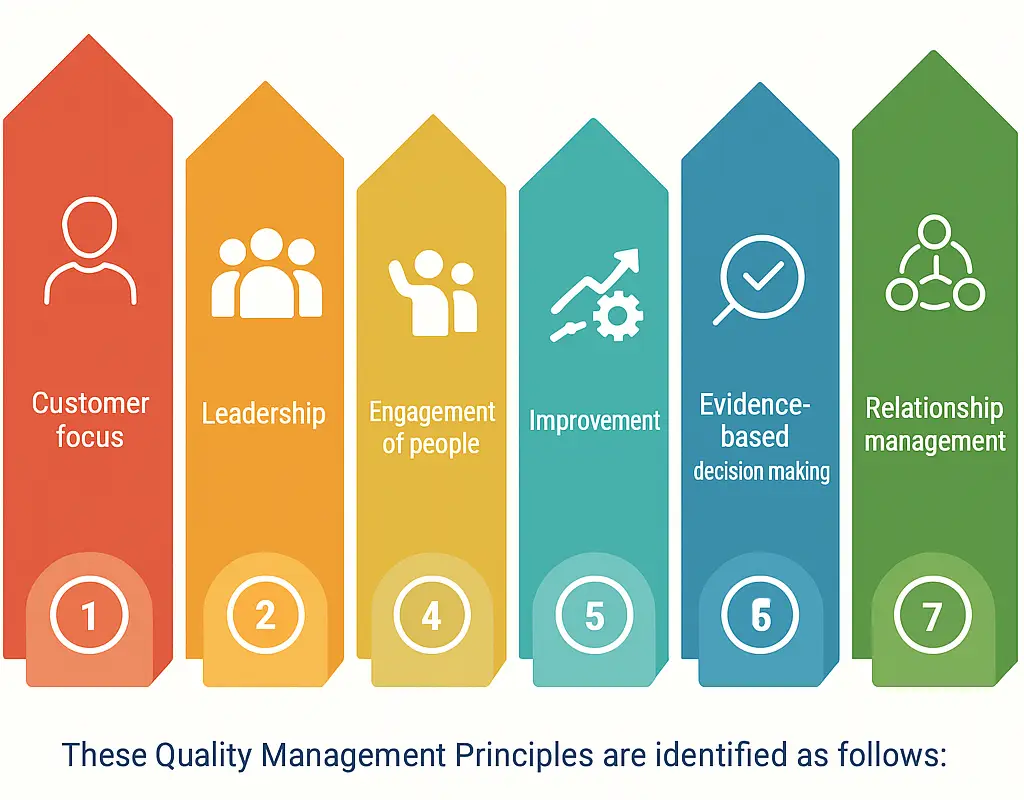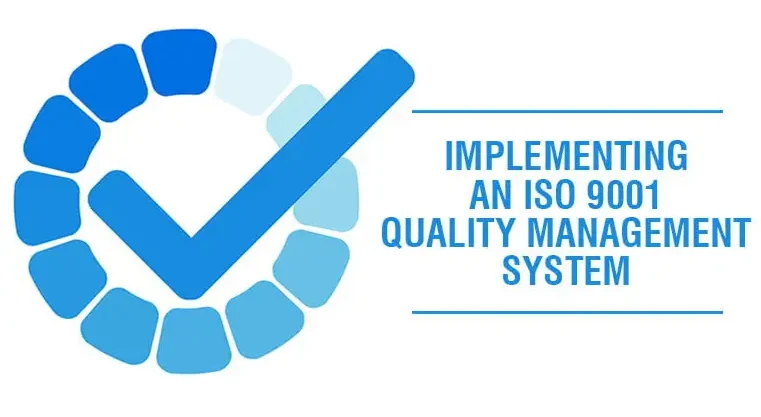ISO 9001 – Quality Management
What is ISO 9001
ISO 9001 defines the criteria for a Quality Management System and is the only standard in the family that can be audited against with the goal of voluntary compliance or to become 3rd party registered. In fact, there are over one million companies and organizations in over 170 countries certified to ISO 9001. All the requirements of ISO 9001 are generic and are intended to be applicable to any organization, regardless of its type or size, or the products and services it provides.
The standard is based on seven Quality Management Principles, including a strong customer focus, the motivation and implication of top management, the process approach and continual improvement.


Complying with ISO 9001 ensures customers get consistent, good quality products and services, which in turn brings many business benefits.
The standards provide guidance and tools for companies and organizations who want to make sure their products and services consistently meet customer’s requirements and that quality and customer satisfaction are consistently improved.
Why Implement ISO 9001
Any organization can meet the requirements of ISO 9001 either through voluntary compliance or to become 3rd party registered. It can be used by any organization, large or small, regardless of its field of activity.
ISO 9001 specifies requirements for a quality management system when an organization wants to:
- Demonstrate its ability to consistently provide products and services that meet customer and applicable statutory and regulatory requirements
- Enhance customer satisfaction through the effective application of the system
- Implement processes for improvement of the system
- Integrate multiple management systems where the ISO 9001 structure is the same, such as ISO 14001 (Environmental), ISO 45001 (Occupational Health and Safety), etc.
- Define its overall context and who is affected as well as what is expected
- Clearly state its objectives and identify new business opportunities
- Put customers first, making sure that their needs are consistently met and enhance their satisfaction
- Have repeat customers, increase customer loyalty, add new clients and increase business
- Expand into new markets, as some sectors and clients require ISO 9001 before doing business
- Identify and address the risks within the organization
- Work in a more efficient way to increase productivity and efficiency, bringing internal costs down

When to Implement ISO 9001
Compliance with the ISO 9001 requirements are typically achieved when there is a need driven by customers but also when an organization wants to improve its QMS with the goal of improving its products or services and ultimately customer satisfaction.
Compliance to the ISO 9001 standard can be done at any time but is typically used when:
- Customers specify this requirement as part of the contract
- Countries require certification in order to trade with them.
- Organizations want to improve their products and customer satisfaction
How to Implement ISO 9001
Organizations’ deciding to develop and implement any new or improved Quality Management System is a strategic decision. All efforts should be focused on the identification and minimization of risk while meeting and exceeding customer and organizational goal and objective requirements.
Organizations should make a commitment to:
- Recognize direct and indirect customers as those who receive value from the organization
- Understand customers’ current and future needs and expectations
- Link the organization’s objectives to customer needs and expectations
- Communicate customer needs and expectations throughout the organization
- Plan, design, develop, produce, deliver and support goods and services to meet customer needs and expectations
- Measure and monitor customer satisfaction and take appropriate actions
- Determine and take actions on interested parties’ needs and expectations that can affect customer satisfaction
- Actively manage relationships with customers to achieve sustained success
ISO 9001 Compliance can be achieved through Quality-One’s Seven Phase Approach:
- Executive and Management Overview / Planning
- Gap Assessment and Planning
- Documentation
- Implementation and Training
- Internal Assessment and Management Review
- 3rd Party Registration Assessment
- Sustain and Continual Improvement
